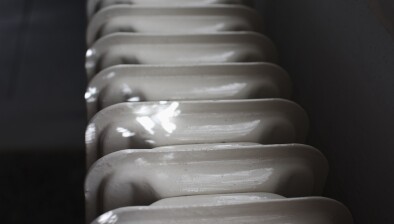One in five people in their sixties ‘future proofing’ their homes
 A fifth of people aged 60-69 are making adaptations to their homes to make them suitable for their needs as they age, new research has revealed.
A fifth of people aged 60-69 are making adaptations to their homes to make them suitable for their needs as they age, new research has revealed.
The study, from Age UK Trading, revealed that over a quarter of these had made the changes because they believe thinking about the future is important in order to ensure they can stay in their homes as long as possible.
Dubbed ‘future-proofers’ because of their desire to plan ahead, a fifth of those in their sixties who had carried out home improvements said they wanted to prepare for their future, with one in ten citing their independence and wanting to manage on their own as the reason behind the adaptations.
However, of this age group one in twenty confessed to not wanting to think about getting older. Almost one in five said they would only think about adaptations to their home if they were advised to by their GP, with a quarter saying they would only consider making changes to their home if they had an accident which affected their physical ability.
In contrast, a third (33 per cent) of people aged 70 and over who had carried out adaptations, cited the fact that their home was no longer suitable for their needs as the reason behind the changes. Of this age group, one in ten had been advised to make changes by their GP, with the same number saying the adaptations had been done by their family in order to help them manage better. Nearly a third of over-70s had made the changes to make caring for a relative easier.
Hugh Forde, managing director of Age UK Trading, said: “As these ‘future-proofers’ demonstrate, thinking about your living situation and how your needs might change as you age is important. However, whilst there is an emerging group of forward-thinking 60 year olds, the reality is that for many older people these needs are only realised after an accident or a relative becoming ill.
“Often small adaptations can make a significant difference, not only helping people retain their independence and stay in their homes longer, but also reducing falls and accidents, and the subsequent cost of care and resources.”
Over a third of the 60 year olds who had made changes (37 per cent) said they felt more confident since carrying out the work, with one in four saying that they now worry less about the possibility of risks. Most popular adaptations amongst the ‘future-proofers’ included the installation of a level access shower or wet room (31 per cent) and one in ten had made doorways more accessible with ramps.








